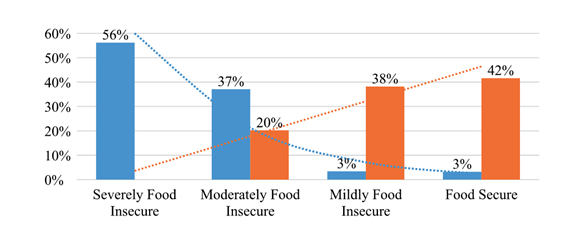Independent evaluation of Deep Bed Farming in Manyamula
13 October 2021
A new independent report details the results from our project ‘to transform small-scale farming through productivity and food security gains’ in Manyamula, Malawi, with an external evaluation survey of 89 Deep Bed farmers and consultations with staff from the Government Ministry of Agriculture. The full report is available here.
Smallholder farmers achieved high crop production on the average land size of 0.1 hectares, with average surplus yields of 281 kilograms after adopting DBF, which is more than double compared to the former yield from the same piece of land. Surplus yield is often sold by smallholder farmers which enables them to maximise income and reduce poverty in their homes. For farmers surveyed monthly incomes increased from an average of 38,824 MWK (£35.50) before adopting DBF to 75,192 MWK (£67) after adopting DBF, which is almost double.
‘I successfully harvested a bumper yield in two consecutive years once I started using the DBF system and a number of people have already started approaching me to help them on how to use the system.’ Kalweya Section Lead Farmer
The severity of food insecurity in Manyamula completely changed due to DBF adoption shown in figure 3 on page 13 and in the table below. Blue is the food status of households before adopting DBF and orange is after. Severe food insecurity is completely eradicated and the number of mildly and fully food secure households dramatically increased.

‘Before the inception of DBF, most of the households were experiencing food insecurity with harvested crops being exhausted before the end of the year. After adopting DBF, most smallholder farmers are now able to harvest a higher yield that lasts the whole year until the following harvest and eventually leads from moderate food insecurity, through mildly food insecurity into food security.’ Tchemba section Focus Group Discussion
The study analysis showed that there was a significant impact on empowering smallholder farmers to rebuild soil fertility using good land husbandry practices. Data shows that 100% of farmers sampled reported a measurable reduction of soil erosion and loss of water after adopting DBF.
Compost was applied to farmed land by only 13.5% of farmers prior to the project intervention. Following DBF training 100% of farmers were using compost and no farmers were reliant on artificial fertiliser any longer.
The analysis indicated an improved health status of the households since the inception of the project, with an average of 61% percent of households reporting no prevalence of diseases on page 10.
The study concludes that the Deep-Bed Farming system approach has significantly contributed towards improving yields which have helped to eradicate food shortages and provide increased household income to smallholder farmers who have adopted the system. This achievement is due in part to Tiyeni’s Deep-Bed Farming project approach of working collaboratively and supporting existing government agriculture extension workers within the impact area.
Through farmers learning to practice DBF and subsequent high levels of change in farming practice, 910 farmers are now known to be practicing DBF in the area.
The full report can be read here: